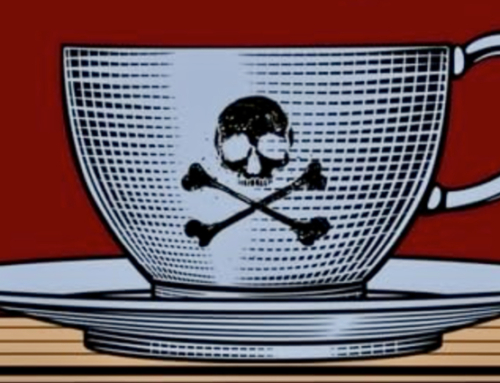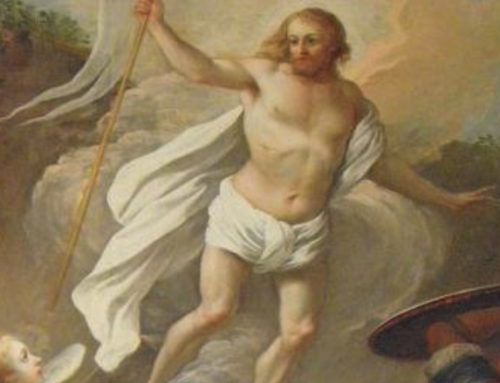Through reading the works of Charles Dickens, we may be inspired to take a closer look at our own priorities and come to a deeper understanding of our inability to embody perfectly our own ideals.
 Throughout the career of the esteemed literary giant Charles Dickens, selfless love as opposed to selfishness served as an underlying theme in his novels. In the characters of Nicholas Nickleby, Lucie Manette, Bob Cratchitt, Cissy Jupe, and many others, Dickens illustrated the proper understanding and execution of selfless love. On the other hand, in story after story, he condemned those who prioritized their own gain over the good of providing aid to others; Ralph Nickleby, Josiah Bounderby, and Wackford Squeers are a few examples. Such villains met terrible ends in many of his works, further indicating the worthlessness of the selfish goods they chose. He consistently reminded his readers that working to bring happiness, safety, and protection to those in need will inevitably lead to a fuller life, whereas failing to do so results in loneliness and self-loathing. While the prominence of this message in Dickens’ novels cannot be doubted, it can also be said that the author’s life was sometimes at odds with it. As a result, one might question his sincerity, but the contradiction of his selfish choices can be reconciled to the ideals extolled in his famous works.
Throughout the career of the esteemed literary giant Charles Dickens, selfless love as opposed to selfishness served as an underlying theme in his novels. In the characters of Nicholas Nickleby, Lucie Manette, Bob Cratchitt, Cissy Jupe, and many others, Dickens illustrated the proper understanding and execution of selfless love. On the other hand, in story after story, he condemned those who prioritized their own gain over the good of providing aid to others; Ralph Nickleby, Josiah Bounderby, and Wackford Squeers are a few examples. Such villains met terrible ends in many of his works, further indicating the worthlessness of the selfish goods they chose. He consistently reminded his readers that working to bring happiness, safety, and protection to those in need will inevitably lead to a fuller life, whereas failing to do so results in loneliness and self-loathing. While the prominence of this message in Dickens’ novels cannot be doubted, it can also be said that the author’s life was sometimes at odds with it. As a result, one might question his sincerity, but the contradiction of his selfish choices can be reconciled to the ideals extolled in his famous works.
Through research on the life of Charles Dickens, one can know that he possessed a deep understanding of selfless love and the necessity of this trait, despite his human flaws. His early years especially helped him to understand the importance of selflessness, as well as the detrimental effects of its absence. His parents’ frivolous behavior provided their son’s first inkling of what it means to act without considering how those actions might harm others. He suffered physically and emotionally because of their thoughtlessness, and was forced to live on his own and work at a blacking factory to support them after their choices led to imprisonment. When his parents instigated his separation from them as a means of bringing in some money for the family, twelve-year-old Charles became all too aware of the selfish priorities of the two people he had trusted to care for him. To this point, biographer Angus Wilson writes, “It is hard . . . to forgive the self-centredness of the Dickens parents that never considered how the small Charles was living hand to mouth in the freedom of the streets” [1]. Years later, Dickens spoke and wrote about the devastating effects of their selfish behavior, recalling how he had “no advice, no counsel, no encouragement, no consolation, no support” [2] to aid him during these hardships. The events of his youth damaged him permanently, and “all his life he was to know both improvidence and insecurity among his family” [3]. With those experiences set firmly in his mind, he entered into adulthood with a right-ordered perspective, not wishing to repeat his parents’ mistakes.
From the beginning, Charles Dickens’ literary works were characterized by his attention to the disadvantaged and his condemnation of those who overlooked or abused them. Having observed the abysmal state of many schools, orphanages, and other societal institutions, he used his wit and words to shed light on these grievances and show “concern for the oppressed, the helpless, the abandoned and the drop-out” [4]. As early as the publication of his second novel, Oliver Twist, his views on charity were clear to the public. His third novel, Nicholas Nickleby, exposes the selfishness and sadistic practices of a Yorkshire schoolmaster as overcome by the good heart of the titular hero. The plot of the later novel Hard Times involves several characters whose utilitarian beliefs lead them to abuse others, thus rejecting opportunities to live by the standards of selfless love. Likewise, one of his most esteemed works, A Tale of Two Cities, conveys this theme in its most extreme sense; namely, through the immortal scene in which Sydney Carton sacrifices his own life to save the husband of his unrequited love. Carton refers to this choice as “a far, far better thing that I do than I have ever done . . . a far, far better rest that I go to than I have ever known” [5], denoting the righteousness of acting for the good of another. An innovative and striking storyteller, Dickens did not shy away from painting dramatic pictures of self-sacrifice in his characters, but the examples he wrote were often subtler. However, in any and all of his novels, the reader can point out examples of altruism as a means of saving another from cruelty and oppression. One could say that his authorship of these works were his primary means of combating the negative aspects of his society. While some authors place emphasis on different themes throughout their careers, Dickens would always espouse the message of charity. Through various plots and hundreds of characters, he advised his readers to “have a heart that never hardens, and a temper that never tires, and a touch that never hurts” [6], and reminded them that “no one is useless in this world . . . who lightens the burden of it for any one else” [7]. As one would expect, he utilized his influence and resources to this end in other ways as well.
Charles Dickens regarded charity and generosity as ideals worthy not only of writing about but of pursuing in his everyday life. Though his tremendous fame must have been a compelling distraction, a reason to become exclusively self-focused, he often spoke on behalf of the needy. In various speeches and articles, he addressed such topics as providing education for underprivileged children, promoting the abolition of slavery, preventing infant mortality, and more. At many events, he used his sway over the public to promote greater charitable efforts, raising awareness of the needs of the poor and marginalized. Despite the attention and adulation his literary prowess brought him, he put his fame to good use by contributing to various philanthropic causes and offering his time to the pursuit of charitable work.
Rather than relying solely on his writing and public speaking engagements to communicate his priorities, Dickens actively utilized his resources to help provide opportunities and care for the downtrodden members of society. In his biography of Dickens, Wilson explains that “his philanthropy in general was not advertised to the public” [8], which illustrates that Dickens was humble about his contributions to charitable organizations. However, we do have evidence of his long-term commitment to certain projects. He co-founded Urania Cottage, which served as a sanctuary and reform house for destitute women. Here, women who had formerly been driven to prostitute themselves or commit other criminal acts were given a comfortable home, wherein they were taught many necessary skills for their eventual reintroduction to society. Dickens dedicated many years to the maintenance of Urania Cottage, one of his “most successful and most persistent social works” [9]; by doing so, he revealed himself to be a deeply charitable man with a particular interest in the plight of the impoverished. However, he did not always give the same attention and care to his own familial relations.
Charles Dickens’ most notable acts of selfishness took place within his marriage of twenty-two years to Catherine Hogarth, with whom he had ten children. While they seemed to have had a loving courtship and early married life, his blossoming success as an author required a great deal of his time and energy, which irritated Catherine. He was explicitly critical of any of her resulting bad moods from the time of their engagement, and stated that he expected her to control those emotions. Wilson notes that Dickens’ concern with keeping Catherine’s ill tempers in control, so as to make life less complicated for him, may have “killed the little that was different in her” [10]. By prioritizing his career-related obligations over the emotional needs of his bride, Dickens acted selfishly at the beginning of their life together.
Over the years of their marriage, Dickens became increasingly disillusioned with his domestic circumstances, and seemed to primarily blame Catherine. While he truly loved his children, he became overwhelmed by their number; Wilson writes, “From early on, he had found the domestic upset of childbirth a trial in his overpacked, carefully-planned working life” [11]. This shows that Dickens viewed his children as a hindrance to the plans he had made, an attitude in opposition to selfless love. When faced with the pressure to provide for so many, he “saw each birth as another strain upon his money-earning energies” [12], which led him to resent Catherine’s fertility as a whole. Again his selfish tendencies in this area become apparent in his “treatment of fertility as though it were a purely feminine contribution to marriage . . . something, one would think, hard for Catherine to bear” [13]. Considering his compassion for those in need, his lack of understanding in this matter leaves much to be desired. However, this shortcoming extended to other aspects of their marriage.
Despite his ability to correct his wife, Dickens often seemed dissatisfied with her overall personality. Rather than keeping his critiques to himself, he revealed her weaknesses to some of his friends, through letters and conversation. On multiple occasions, he portrayed her as an inadequate housekeeper and a mother who felt no true affection for her children. While the general public cannot definitively know whether these descriptions were accurate, it reflects poorly on Dickens that he would intentionally highlight her flaws. He did not practice selfless love when he spoke disrespectfully of his spouse, thereby causing others to disrespect her as well. He may or may not have been justified in his opinions of Catherine as a wife and mother, yet there must have been other, more constructive ways to address these concerns. Wolf Mankowitz writes of Catherine’s inevitable awareness of her limitations when compared with her well-known spouse: “She could not live up to his wit, grace, charm, energy . . . But she need not have suffered as a result, had Dickens not tormented her with her shortcomings” [14]. Since Dickens was constantly celebrated for his great talent, ideally he should have helped his wife to feel valuable, rather than mocking her to his friends.
Further proving his lack of appreciation for Catherine, Charles spoke and acted amorously toward other women on more than one occasion. One such woman was his former lover Maria Beadnell, who resumed contact with him shortly before his separation from his wife. Dickens arranged a meeting between himself and Maria, a choice which hinted at the possibility of an affair. Since he did not find Maria pleasing to him after so many years apart, no such affair took place. However, his communications with her reveal that he had already been emotionally unfaithful to Catherine. In telling Maria that after their relationship he had “ever since half loved” [15], he confirmed his lack of respect for and devotion to his wife. In his words, his romantic attachment and subsequent heartbreak from long ago caused him to be “chary of showing my affections, even to my children, except when they are very young” [16]. While acknowledging that Dickens may have believed his difficulty with emotional intimacy to be the result of romantic disappointments, his selfish perceptions regarding his marriage were also to blame.
His lack of thoughtfulness toward Catherine was perhaps most apparent toward the end of their marriage. It was during this time that he became close with the actress Ellen Ternan, and although it is unknown whether they had an affair while he was still married, he caused his wife to become suspicious. After a gift for Ellen was mistakenly delivered to the Dickens family residence, Catherine accused Charles of infidelity. Rather than listening to her concerns, he forced his wife to visit Ellen, an event that must have been completely humiliating for Catherine. The fact that they had grown apart and were drifting further away from the intimacy they had once shared is no excuse for this behavior. By demanding that Catherine visit Ellen to “demonstrate her confidence in him, and her acceptance that Ellen was innocent” [17], Charles showed his wife that he did not intend to spare her feelings. He caused her much pain in this instance, though that pain undoubtedly reached its climax after they had separated.
Later the same year, Charles Dickens made the choice to announce the separation to the public, an action which in and of itself proves that he did not place high priority on selflessness toward Catherine. His explanation of the circumstances of their divorce, a “public confession of private affairs” [18], was published first in Household Words, and later in an American periodical. Several newspapers criticized this announcement as being in poor taste; speaking to these negative responses, Wilson adds, “Certainly, as one newspaper pointed out, the public charging of Catherine as a bad mother is most distasteful, and a veiled suggestion that she was mentally abnormal is even more disgraceful” [19]. Worse still, as a means of clearing his own name and portraying himself in the most favorable light, Dickens stooped so low as to mention the generous settlement he planned to provide for Catherine. Not only did he announce his negative judgments of his spouse, but he purposefully gave the public every reason to view him sympathetically. Of this decision and its consequences, Wilson explains, “It is clear that he felt trapped by life and was prepared to tear anyone to pieces in order to free himself” [20]. Regrettably, in this case that was the woman he had once pledged to love and cherish throughout his life.
The temptation of some readers may be to dismiss or dilute Dickens’ strong emphasis on compassion, since the author did not consistently act with this virtue in mind. This would be a misguided response, considering the weaknesses we can all discover in ourselves. Dickens was certainly aware of these weaknesses and knew that the characters of all people contain a mix of vice and virtue; yet he purposefully wrote characters who are unambiguous, and therefore edifying to his readers. Even when his moral stance in his personal life became muddled by temptation and dissatisfaction, his goal as a writer was to maintain the distinction between the villains and the heroes. Through the consistency of this distinction—spanning several decades and fifteen novels—we can see the clearest evidence that Charles Dickens firmly believed in the necessity of practicing selfless love. While he fell short in his treatment of and separation from his wife, he never gave up that message in his career and other pursuits. Charles Dickens himself perfectly summarized his efforts to live virtuously through the narration of his character David Copperfield: “My meaning simply is, that whatever I have tried to do in life, I have tried with all my heart to do well; that whatever I have devoted myself to, I have devoted myself to completely; that in great aims and in small, I have always been thoroughly in earnest” [21].
In the literary world, the distinctive voice of Charles Dickens will always retain its relevancy, since his message regarding the life-giving effects of selflessness can be understood by any reader. In fact, the knowledge of Dickens’ human failings can add to his readers’ interpretation of his emphasis on selfless love. Just as Dickens struggled to live according to his own ideals, his readers may also recognize their own deficiencies and work to improve upon them. Through reading the works of this great author, we may be inspired to take a closer look at our own priorities and come to a deeper understanding of our inability to embody perfectly our own ideals. We can infer that a good man, despite his best intentions and many charitable acts, will inevitably still find some stumbling block, an inner weakness in some area of his life. G.K. Chesterton certainly said it best when he wrote, “He [Dickens] was the brotherhood of man, and knew it was a brotherhood in sin as well as in aspiration” [22]. Keeping in mind the abundant evidence of his good intentions and contributions to the literary world and society as a whole, we may continue to uphold Charles Dickens as a flawed but sincere proponent of selfless love.
The Imaginative Conservative applies the principle of appreciation to the discussion of culture and politics—we approach dialogue with magnanimity rather than with mere civility. Will you help us remain a refreshing oasis in the increasingly contentious arena of modern discourse? Please consider donating now.
Notes:
- Angus Wilson, The World of Charles Dickens (New York: The Viking Press, 1970), 54.
- Wilson, 51.
- Wilson, 90.
- Wilson, 58.
- Charles Dickens, A Tale of Two Cities (New York: Vintage Classics, 1990), 380.
- Charles Dickens, Our Mutual Friend (London: Penguin Books, 1997), Bk. 2, Ch. 8.
- Our Mutual Friend, Ch. 9.
- Wilson, 211.
- Wilson, 211.
- Wilson, 107.
- Wilson, 252.
- Wilson, 252.
- Wilson, 252.
- Wolf Mankowitz, Dickens of London (New York: Macmillan Publishing Co., Inc., 1976), 201.
- Wilson, 103.
- Wilson, 103.
- Mankowitz, 198.
- Wilson, 256.
- Wilson, 256.
- Wilson, 256.
- Charles Dickens, David Copperfield (London: Penguin Books, 1996), Ch. 42.
- G.K. Chesterton, The Victorian Age in Literature (United Kingdom: Stratus Books, 2001), Ch. 2.
The featured image of Charles Dickens as photographed by Herbert Watkins, 1858, is in the public domain, courtesy of Wikimedia Commons.







Leave A Comment